Digestive System
All information about "Digestive System" and the related magazine articles can be found here.
Our articles are written clearly and link to scientific studies where relevant. This is how we meet our own standards: we regularly deliver new, high-quality content for you—free of charge, no sign-up required, with the highest possible benefit to you.

Your rest compass for the summer: Naturally in balance with saffron.
Gentle support from nature for mental serenity and your well-being
Does your inner rhythm sometimes falter in the hustle and bustle of everyday life and does your serenity wane? With saffron, nature offers a valued way to harmonize the carousel of thoughts and cultivate your inner center. Discover here how the red gold can lead you back to new balance and lightness.

Inner peace for hot days, with GABA and rose root extract
Support your nervous system with herbal active ingredients that can reduce stress, stabilize your mood and promote your mental balance even in the summer heat.
Summertime often brings stress due to heat, travel or busy schedules. GABA and the adaptogenic rose root extract help you to get through the summer more calmly by promoting your stress resistance and inner peace. So you can enjoy your emotional balance and greater well-being.

Light legs, light day. How horse chestnut, vitamin C and OPC help against heaviness
Discover how proven plant extracts and vitamins can relieve the feeling of heavy legs. For more lightness in everyday life for mom, grandma & co.
Heavy legs after a long day? Horse chestnut, vitamin C and OPC can promote blood circulation, strengthen the veins and noticeably relieve the feeling of tired, weighed-down legs. Ideal for anyone who stands a lot, walks a lot or simply wants to stay active in everyday life. Whether mom is out shopping or grandma is out for a walk. Find out how these natural active ingredients support your leg health and give you new lightness.

Mental strength in summer?
Ashwagandha and roseroot help you stay calm and alert on hot days
Summer brings light, energy and sometimes a lot of stress. So it's a good thing that nature has two herbal allies in the form of ashwagandha and roseroot, which can promote mental balance and resilience. Find out more!

Rescue for cozy summer evenings
Natural mosquito repellent with vitamin B1 & essential oils
Whether it's a garden party or an evening stroll: as soon as it starts buzzing, the mood is gone. Vitamin B1 and essential oils such as citronella or lavender can help to gently keep mosquitoes away. How does this work? Read here how natural remedies ensure carefree summer evenings.

Summer, sun, full concentration!
How phosphatidylserine and omega-3 can boost your concentration
The sun is shining but your concentration is waning? Discover how phosphatidylserine and omega-3 fatty acids can naturally boost your mental performance.

Relaxed baby bump: Natural support with inositol, folic acid, cranberry & D-mannose
Balance and well-being for women who want to have children or during pregnancy
Wanting to have children or already pregnant? A lot changes during this special phase. Smart nutrients such as inositol, folic acid, cranberry and D-mannose can provide targeted support: They promote hormonal balance, strengthen the urinary tract and bring more balance to everyday life. Find out now how you can do something good for yourself naturally.

Start your vacation full of energy with potassium & magnesium citrate
How to keep you and your family fit, active and balanced even in the heat
On summer vacation, electrolytes such as potassium and magnesium quickly become unbalanced. This can affect energy, muscles and concentration. Find out here how you can strengthen your inner balance with smart nutrition and targeted supplements.
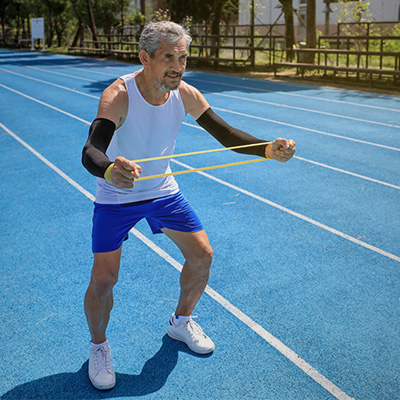
Strong heart, strong life. Promoting men's health naturally
Gain new energy and vitality with coenzyme Q10, chokeberry as a medicinal plant and targeted care for the cardiovascular system.
The heart is the engine of your life - and men in particular should pay special attention to it. Find out how you can use the effects of coenzyme Q10, the healing power of the aronia berry and a healthy lifestyle to strengthen the function of your cardiovascular system and support your overall health as a man.

When the hormone balance changes
Gentle nutritional support through the menopause
The menopause changes many things - both physically and emotionally. Myo-inositol, vitamin D3 and magnesium can help to boost your well-being, support your metabolism and activate new sources of energy. Find out more here!

Comfort food for super moms
Choline, lecithin & vitamin B12 - powerful micronutrients for a strong pregnancy
Did you know that certain nutrients can have a positive effect not only on your well-being, but also on your baby's development? Choline, lecithin and vitamin B12 are little helpers with a big effect - for strong nerves, clear thoughts and a good gut feeling during this special time.

Playground power for every day
Calcium & vitamin K2: For bone health that grows with you
Whether romping around with the children or the daily balancing act between job and family - strong bones are the stable foundation. Find out how calcium and vitamin K2 can playfully help to strengthen your bones.

Naturally powerful: Turmeric, boswellia & ginger
Learn how to gain more zest for life with plant power
Plant-based active ingredients can help to reduce inflammation and make everyday life more active and mobile - whether in the garden, during sport or on a family outing.
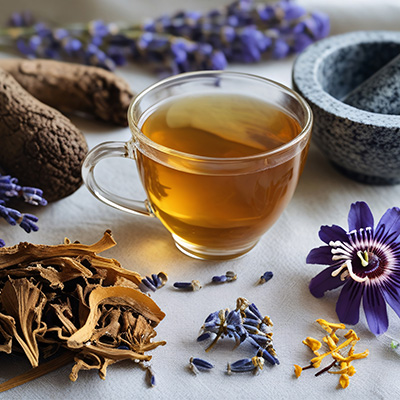
Finally sleep well again - even in summer!
Discover natural sleep aids with melatonin, passion flower & co.
Is the summer light depriving you of sleep? We show you how you can support your sleep-wake rhythm with natural remedies such as melatonin and passionflower.

Sun protection from within - with the power of vitamin A, astaxanthin and omega-3
Strengthen your skin with natural nutrients that reduce oxidative stress, soothe inflammation and prevent premature ageing.
The first rays of sunshine are here - but your skin is particularly sensitive after the winter. Discover how vitamin A, the antioxidant astaxanthin and essential omega-3 fatty acids can protect your skin from the inside out and optimally prepare it for UV radiation. For a radiantly healthy complexion and effective anti-ageing support.

Spring cleaning for the body!
Drain naturally - with nettle, dandelion & potassium
Find out more about dandelion, stinging nettle and potassium to gently drain your body and get back on track with ease!

Naturally against allergies - Black cumin oil and quercetin in use for your well-being
Gentle support from nature for hay fever, pollen allergies and allergic reactions
Itchy eyes, sneezing attacks and constant pollen stress? Black cumin oil and quercetin offer natural help for allergic symptoms. Find out how the two herbal active ingredients work, when it is the right time to use them and what you should look out for when choosing them.

Strong through the pollen season with omega-3 and vitamin E
How to strengthen your child's airways
When pollen irritates the airways, it can quickly become unpleasant for children. Find out why omega-3 and vitamin E can not only support but also prevent and how you can easily incorporate the two substances into your everyday life!
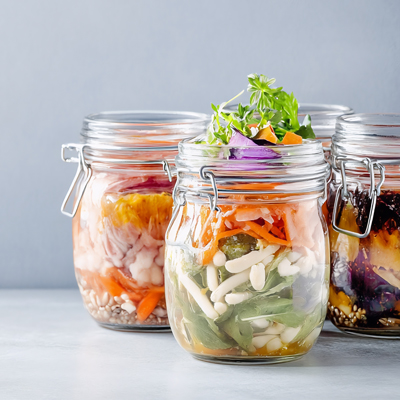
Fit for spring: Stimulate metabolism with inulin, probiotic foods & intestinal cure
Intestinal cleansing for better digestion, the natural effects of inulin and the benefits of probiotic foods for your metabolism
Get a vital start to spring and bring your body into balance - with targeted nutrition that boosts your metabolism, supports digestion and rebalances your gut with the help of a gut cleanse, inulin and probiotic foods. Find out how to boost your gut health and gain new energy - from the inside out!
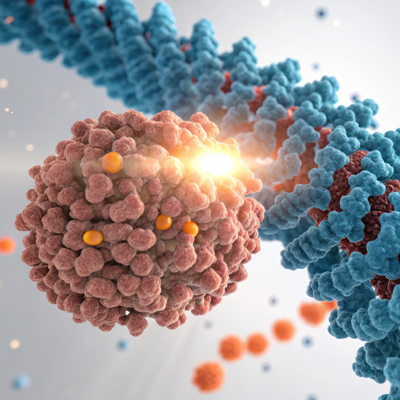
New cell energy with B vitamins, NADH and alpha lipoic acid
NADH, alpha lipoic acid and B vitamins play a central role in human metabolism for energy, concentration and cell protection.
Discover how these nutrients support the body against exhaustion, oxidative stress and loss of performance - for more vitality and mental strength in everyday life!

Sleep better with lemon balm, passionflower and L-theanine
These natural helpers bring peace to your evening
Sleep disorders? Stress in the evening? Herbal helpers such as lemon balm, L-theanine and passionflower can gently support the sleep-wake rhythm and help you to finally calm down. Read the article now to find out how you can harness the power of nature for restful nights.

Spring fever for the soul
Naturally more balance with 5-HTP, L-tryptophan and vitamin B6
The sun is shining - but everything still feels heavy inside?
These three mood boosters gently help you arrive in spring: for more rest, sleep and stability. Find out more here!
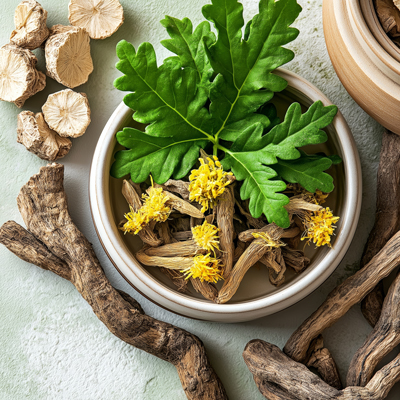
Building inner strength - more relaxed through spring
Plant adaptogens for more balance, energy and mental freshness
Spring is the perfect time to recharge your batteries and do something good for yourself. Rhodiola and cordyceps provide natural and effective support. Find out more here!

Strengthen your immune system with rockrose, zinc and vitamin C
Natural support for your immune system
Cistus, zinc and vitamin C can provide your body with valuable support in moody weather. Find out how these three building blocks gently strengthen your defenses and give you more well-being in everyday life.
Your body, your digestive system: Everything you need to know about the anatomy and function of digestion!
Have you ever wondered exactly how your body converts the food you eat into energy and nutrients? The journey that your breakfast, for example, takes through your digestive tract is complex. From the initial mechanical grinding in the mouth to the final excretion of the indigestible remains – every step plays an important role in ensuring that your body gets the nutrients it needs.
Nutritionists and doctors agree: a thorough understanding of digestion is the key to a healthy and vital life. Ready to learn more? We can give you the information you need!
How is the digestive system structured?
The human digestive system includes several important organs:
- Mouth
- Oesophagus
- Stomach
- Small intestine (including duodenum)
- Large intestine (including colon and rectum)
- Liver
- Pancreas
- Gall bladder
Each of these organs has specialized tasks and functions that ensure the efficiency of the process and thus the absorption of nutrients [1].
How does digestion work in simple terms?
The digestive system is a comprehensive model that consists of several organs that work together to break down the food we eat into usable nutrients. The sequence is clearly structured and quickly explained [1]:
- 1. The process begins in the mouth, where mechanical crushing and enzymatic digestion by saliva begins.
- 2. The food pulp enters the stomach via the esophagus.
- 3. In the stomach, gastric acid and the enzyme pepsin continue the digestive process.
- 4. In the small intestine, the substances are further broken down and absorbed, aided by enzymes from the pancreas and bile from the gallbladder.
- 5. The large intestine (including the rectum) absorbs water and electrolytes before excreting indigestible residues as stool.
Why is digestion important?
The digestive process is essential to break down the nutrients absorbed from food into smaller molecules that the body can absorb and use. These substances are necessary for energy, growth, cell repair and general well-being. Without an efficient digestive process, the important substances could not be absorbed into the body.
Which organ is particularly important for digestion?
Each organ in the complex digestive tract plays a crucial role and has its own function, but the small intestine is central to efficient digestion and absorption of nutrients. The small intestine is the longest section of the digestive tract and plays a key role in breaking down food into absorbable components.
The pancreas produces a variety of enzymes that are released into the small intestine. These enzymes break down carbohydrates, proteins and fats into their smallest components so that they can then be absorbed through the small intestinal wall. In addition, the liver produces bile, which is stored in the gallbladder and then released to emulsify fats and facilitate their absorption in the small intestine [2].
How long does it take for food to be digested in the stomach?
The digestion process in the stomach can take between 2 and 4 hours, depending on the type and amount of food consumed. Fats and protein-rich foods take longer to digest than carbohydrates.
How long does digestion take until defecation?
The length of time it takes for food to be digested can vary depending on the type of food and individual factors. In general, it takes about 6 to 8 hours for food to pass through the stomach and small intestine. After that, it can take another 12 to 24 hours for the indigestible remains to be transported through the large intestine and excreted as stool.
Why do digestive problems occur?
We've all experienced the uncomfortable feeling – bloated tummy, sluggish digestion, constantly changing moods. Digestive problems can occur for so many reasons: poor eating habits, stress, too little fiber, insufficient fluid intake and certain medical conditions. But don't worry, there are simple ways to get your gastrointestinal tract going! Find out more about bowel health here.
How can you stimulate digestion?
The intestines digest continuously, but the efficiency of the digestive process can be affected by various factors such as diet, hydration and physical activity. Taking the following aspects into account can help you support your digestive system:
Nutrition and dietary fiber
Dietary fiber is the indigestible part of plants that stimulates peristalsis by increasing stool volume and accelerating intestinal transit. There are soluble fibers that dissolve in water and form a gel-like substance, and insoluble fibers that absorb water and increase the mass of the stool. Foods such as whole grains, fruits, vegetables, and legumes are rich in fiber and thus promote healthy digestion. They form propionic acid in our intestines – find out more here!
Fluid intake
Water is essential for the digestive process, as it softens stools and facilitates the movement of food through the intestines. Adequate fluid intake helps to prevent constipation, and supports the functioning of enzymes necessary for the breakdown of nutrients. It is recommended to drink at least 1.5 to 2 liters of water daily, depending on body weight and activity level.
Physical activity
Regular exercise promotes intestinal motility, which is the ability of the intestines to move food through wave-like muscle contractions. Activities such as walking, running, swimming and yoga can stimulate intestinal motility and help to prevent digestive disorders such as constipation. Exercise also reduces stress, which can negatively affect the digestive process.
Stress management
Stress can significantly impair the digestive process by increasing the release of stress hormones such as cortisol, which can slow down or speed up bowel function. Relaxation techniques such as meditation, deep breathing, progressive muscle relaxation and adequate sleep can help to reduce stress and thus support digestion.
Probiotics and prebiotics
Probiotics are live microorganisms that can positively influence intestinal flora. They are found in fermented foods such as yogurt, kefir, sauerkraut, and kimchi. Prebiotics, on the other hand, are indigestible food components that promote the growth and activity of beneficial bacteria in the gut. Both contribute to intestinal health by maintaining the balance of intestinal flora and improving the digestive process [2].
Chewing and eating habits
Thorough chewing is the first step in the digestion process and prepares food for enzymatic digestion in the stomach and intestines. Eating slowly and chewing thoroughly ensures that food is well-crushed, facilitating mechanical digestion and improving the absorption of nutrients [5]. In addition, eating mindfully can help avoid overeating and relieve the digestive system.
More helpful tips
Different life situations or illnesses require an adjustment of the diet to ensure the supply of nutrients and to alleviate any symptoms:
- More about optimal nutrition during pregnancy
- Help with nutrition tips for osteoarthritis
- Iron deficiency and iron deficiency anemia
Sources
[1] https://www.netdoktor.de/anatomie/verdauungssystem/
[2] https://www.studysmarter.de/schule/biologie/der-menschliche-koerper/verdauungstrakt/
[3] https://www.kenhub.com/de/library/anatomie/verdauungssystem
[4] https://viamedici.thieme.de/lernmodul/557179/529666/verdauungssystem
[5] https://www.spektrum.de/lexikon/biologie/verdauung/69251
